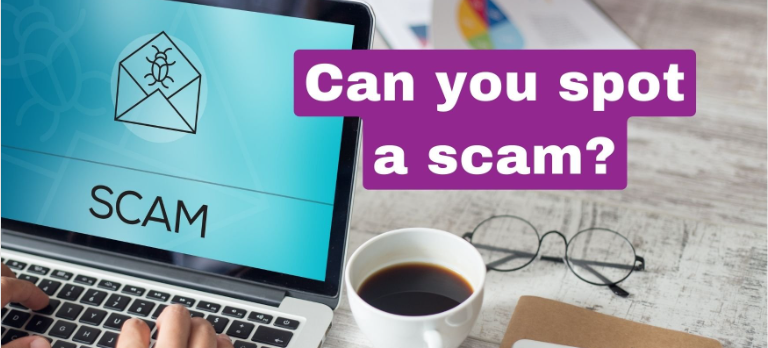In today’s digital age, scams are becoming increasingly sophisticated, targeting individuals of all ages and financial backgrounds. As your trusted financial advisors, we want to ensure you have the knowledge to protect yourself and your finances. Here are some key tips to help you spot a scam and safeguard your hard-earned money.
Common Signs of a Scam
- Unsolicited Contact: Be wary of unexpected calls, emails, or messages from unknown individuals or organizations. Scammers often pose as representatives from legitimate companies, including banks or government agencies.
- Urgency and Pressure: Scammers create a sense of urgency to rush your decision-making. They might claim that immediate action is required to avoid penalties or seize a limited-time opportunity.
- Too Good to Be True: If an offer seems too good to be true, it probably is. Promises of high returns with little risk, guaranteed profits, or exclusive investment opportunities are red flags.
- Request for Personal Information: Legitimate organizations will never ask for sensitive information like Social Security numbers, account details, or passwords over the phone or through email.
- Payment Methods: Be cautious if you’re asked to make payments via wire transfers, prepaid debit cards, or cryptocurrencies. These methods are often used by scammers because they are hard to trace.
How to Protect Yourself
- Verify Contacts: Always verify the identity of anyone contacting you. Use official contact information from reputable sources, such as the organization’s official website, to confirm their legitimacy.
- Do Your Research: Before engaging with a new investment or financial opportunity, do thorough research. Check for reviews, seek advice from trusted sources, and consult with us if you have any doubts.
- Monitor Accounts Regularly: Regularly review your bank statements and credit reports for any unusual activity. Early detection can help prevent significant financial loss.
- Use Strong Passwords and Security Measures: Ensure your online accounts are protected with strong, unique passwords and enable multi-factor authentication where possible.
- Educate Yourself and Others: Stay informed about the latest scam tactics and share this knowledge with friends and family. Awareness is a powerful tool in preventing scams.
What to Do if You Suspect a Scam
If you suspect you’re being targeted by a scam, do not engage or share any personal information. Contact us immediately, and we can guide you on the next steps, including reporting the scam to the appropriate authorities.
Your financial security is our top priority. By staying vigilant and informed, you can protect yourself from scams and make confident decisions about your financial future. We’re always here to support you—please reach out if you have any concerns or need further advice.






